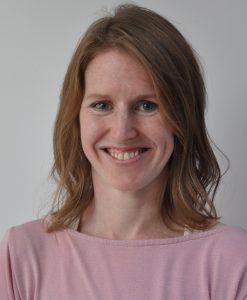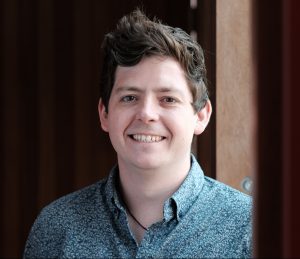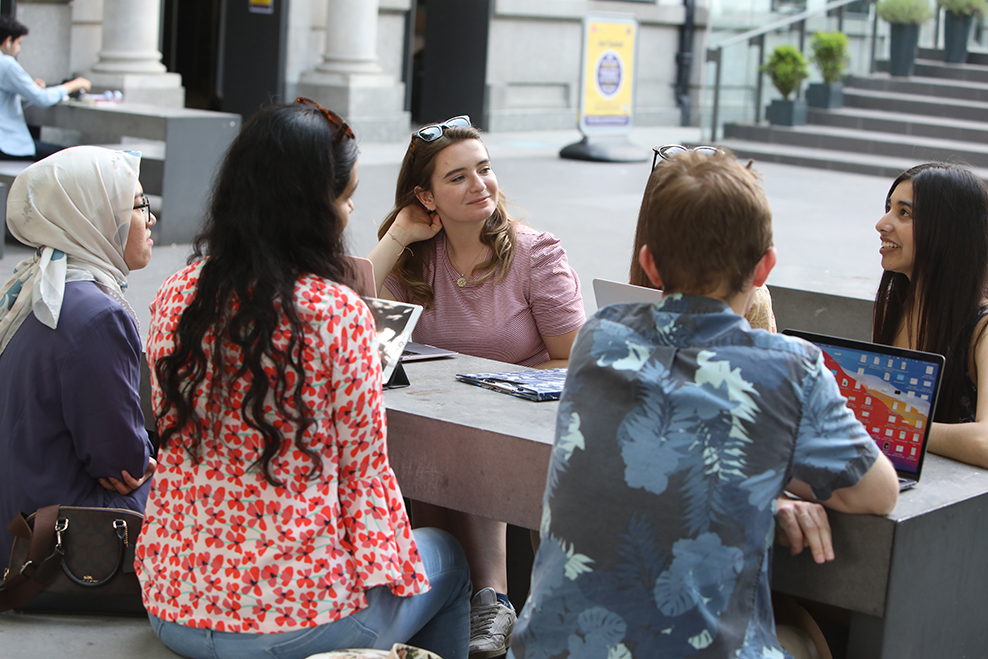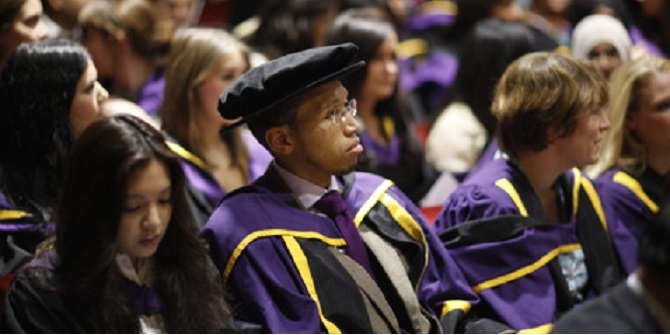Two speakers at this Alumni Panel are LSE PhD graduates who work in academia. They described different career experiences and we unearthed some common themes, which are summarised here, by Catherine Reynolds, LSE Careers Consultant.
The panellists:
 Dr Kate Alexander Shaw, LSE PhD Government 2018. Kate is now a Research Officer for the European Institute and was previously a Senior Policy Analyst for the HM Treasury. Kate came to LSE as a mature PhD student after several years in the Civil Service and other public sector roles. Curiosity, a love of teaching and research, led Kate into research work and she is now building her academic career, after a break for parental leave at the end of her PhD. Applying for academic jobs has been a challenging process, with hindsight, the factors sustaining her through the early stage of her academic career include resilience, a financial Plan B (including private tutoring work), allowing time for lengthy job applications, securing institutional affiliation (so the .ac.uk email address and library access continue uninterrupted) and an academic roof over her head, keeping publishing and most importantly sustaining contact with people who find her work interesting. Cultivating networks of people who can help (your supervisor for moral support, external examiners for references, conference delegates as academic friends) and provide ongoing relationships is a big effort but worth the time. Kate’s advice: don’t disappear, however hard that is.
Dr Kate Alexander Shaw, LSE PhD Government 2018. Kate is now a Research Officer for the European Institute and was previously a Senior Policy Analyst for the HM Treasury. Kate came to LSE as a mature PhD student after several years in the Civil Service and other public sector roles. Curiosity, a love of teaching and research, led Kate into research work and she is now building her academic career, after a break for parental leave at the end of her PhD. Applying for academic jobs has been a challenging process, with hindsight, the factors sustaining her through the early stage of her academic career include resilience, a financial Plan B (including private tutoring work), allowing time for lengthy job applications, securing institutional affiliation (so the .ac.uk email address and library access continue uninterrupted) and an academic roof over her head, keeping publishing and most importantly sustaining contact with people who find her work interesting. Cultivating networks of people who can help (your supervisor for moral support, external examiners for references, conference delegates as academic friends) and provide ongoing relationships is a big effort but worth the time. Kate’s advice: don’t disappear, however hard that is.
 Dr Joe Lane, LSE PhD Economic History 2017. Joe is now Programme Director and Lecturer at Henley Business School, University of Reading, and previously an LSE Fellow. After three years in postdoc fellowships at LSE, Joe has secured a position he had not dared to imagine. He describes growing into the role and clearly loves his job. Having taken time to find his academic home with business historians in a Business School, he is now teaching a wide range of courses, has a managerial position as Programme Director and, as part of his contract, has a proportion of his time available for conducting and publishing research. None of this was certain during his PhD and Joe describes taking each step slowly, moving from one stage to the next. He was focusing on doing one thing at a time, doing it well and keeping his eyes open while figuring out the next step for when the next turning point came. Through LSE 100 and GTA roles he built his capacity to teach well and broadly, beyond the core Economic History curriculum. He also built his academic network and had presented in his current department before joining them in his permanent role. Having given a paper in the same department 18 months before the selection interview meant he felt known when going through the recruitment process and he was very pleased to be successful. The job has a three year probation period and the criteria for promotion to Senior Lecturer are clear: publish, submit a grant proposal and collaborate with colleagues on research projects.
Dr Joe Lane, LSE PhD Economic History 2017. Joe is now Programme Director and Lecturer at Henley Business School, University of Reading, and previously an LSE Fellow. After three years in postdoc fellowships at LSE, Joe has secured a position he had not dared to imagine. He describes growing into the role and clearly loves his job. Having taken time to find his academic home with business historians in a Business School, he is now teaching a wide range of courses, has a managerial position as Programme Director and, as part of his contract, has a proportion of his time available for conducting and publishing research. None of this was certain during his PhD and Joe describes taking each step slowly, moving from one stage to the next. He was focusing on doing one thing at a time, doing it well and keeping his eyes open while figuring out the next step for when the next turning point came. Through LSE 100 and GTA roles he built his capacity to teach well and broadly, beyond the core Economic History curriculum. He also built his academic network and had presented in his current department before joining them in his permanent role. Having given a paper in the same department 18 months before the selection interview meant he felt known when going through the recruitment process and he was very pleased to be successful. The job has a three year probation period and the criteria for promotion to Senior Lecturer are clear: publish, submit a grant proposal and collaborate with colleagues on research projects.
When I listen to career stories, I hear the speakers’ reflections on their progression being influenced by:
- who is involved in this career (their relationships and roles)
- what is/has been going on (the themes, topics or content of the career)
- how is this happening (what strategies, processes, and actions have taken place)
- where is this happening (in what contexts and spaces)
- why this has all happened (the meaning we can make).
Who
People are involved in career progression and this was noted by all the speakers: the flatmate who passed on a job ad, the supervisors and mentors who provided encouragement, peers who acted as role models, colleagues with shared interests who formed a tribe, family members who had expectations and to whom we feel loyalty, examiners who provided references. Finding our work-related friends matters and takes time, but in all cases, this has led to a stronger sense of professional identity and clarity over who we are, and who we are not.
What
Balancing building experience in terms of teaching, publishing and writing grant applications were common themes. Guest teaching, summer school teaching, GTA positions and teaching fellowships all built useful experience but Kate described her teaching responsibility as being like a ‘meteor hitting my research productivity’. The demands are great and knowing when you have done enough means stopping and focusing on the other strings to your bow, especially publishing. Fighting shy of putting work ‘out there’, allowing a perfectionist tendency to hold you back from submitting work were also recurring themes. The speakers recommended taking advice from mentors and making a plan for publishing which you stick to. Identifying parts of your work to publish as different papers, say one on methods, one literature review, one on findings might help you to be efficient and productive if single-authored papers are the norm for publishing in your field. Knowing what type of publications are most prized: single/co/multiple authors, papers or monograph? And where to publish – highly rated journals, which book publisher? All of these factors vary from discipline to discipline. Become an expert in yours.
How
Making job applications and being rejected was a common thread too. The speakers had been turned down for jobs, despite feeling privileged by their position and LSE education, they had experienced setbacks before getting to where they are now. So strategies evolved to play the long game, keep going and to stay positive while learning more about what was needed and how to present themselves effectively. Knowing how to present skills and experiences to different audiences meant learning, and time was needed for reflection and learning the game. There is a vocabulary in every sector that can be learnt and adopted to demonstrate your fit. Learning about yourself, your field, your peers and your future employers can be transformative and being open to change, adapting to the current environment is heightened in a pandemic hit job market but pre-COVID-19 has also influenced the careers of our speakers. The sense of a person’s professional identity shifts as you become more certain about the contribution you can make, how your voice can be heard and what matters most to you in your future. Everyone is unique and the values that matter to you in work will influence the choices you make. ‘Do what interests you’ – was a tip from one of our speakers and knowing what interests you becomes clearer with more experience.
Where
Different theatres – the places we live, work and study – influence us too, and we adapt to the culture and ethos of our environments. In academia, the importance of being ‘out there’, being seen and noticed by others had helped our speakers. Memberships of academic associations (‘get on the list’), joining sub-groups, attending and presenting at conferences, speaking on panels, organising events, then following up, keeping in touch with the people you find interesting. It’s excruciating but ‘mingle’ was the advice, even when that’s solely online.
Why
Making meaning from a career often happens with hindsight, narratives develop and are re-adjusted over time. These speakers reflected on their motivations and their developing sense of professional identity as an iterative process of career development. Their understanding and assessment of themselves became clearer as time passed and they gained more experiences, along with feedback from other people. The non-linear processes and unexpected time frames meant staying calm, playing the long game and deciding how to use their energy to create opportunities. This takes substantial effort, and panicking is normal sometimes. Often the emotions come in phases and these can be managed if you seek the help which will work for you.
All the speakers highly valued their LSE experience, the support available here, the privileged position it gave them and the regard with which they are viewed by others. All this is a good basis for careers to develop, along with serendipity and happenstance. These are reasons to be optimistic and we thank our speakers for sharing so generously their insights and enthusiasm for their work. There is much to be learned by listening to the tales of our peers.
If this summary raises career ideas or questions for you, please get in touch. I’d like to hear your reactions. What else do you need to learn? Do let me know.
LSE PhD students and early career researchers are encouraged to make use of LSE Careers. Book confidential meetings with Catherine Reynolds online and attend our careers events, as advertised on CareerHub. If there are other events you’d like or other types of career support, please email c.reynolds1@lse.ac.uk.





